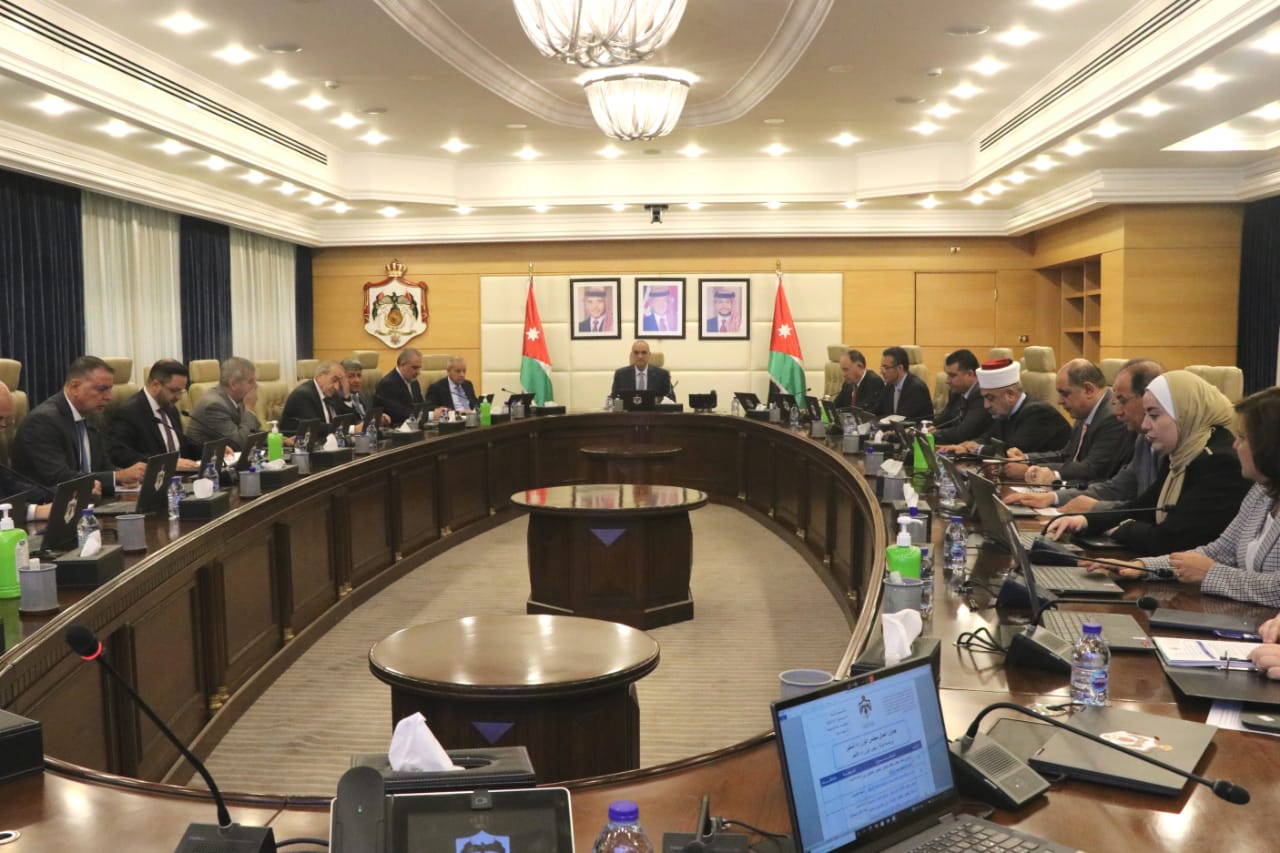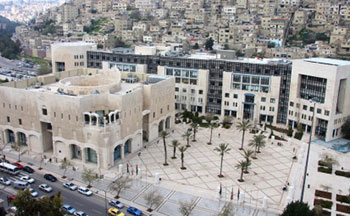 Jordan Audit Bureau
Jordan Audit Bureau
Jordan Audit Bureau

General Information
Creation of the Audit Bureau:
The establishment of the Audit Bureau in
Phase 1 dates back to January 1928, when the “Account Auditing Department” was established in Trans Jordan. Its duties included the auditing of accounts in the Emirate of Trans Jordan. Towards the end of 1930, this Department was replaced by the “Audit Department” in accordance with the Ministerial Decree issued in the Official Gazette no. 271 dated 9/8/1930.
Phase 2 dates back to 1931, when the Auditing Law was issued. According to this law, the Audit Department was established in accordance with Article no. 19 of the Constitution of the Emirate of Trans Jordan. The duty of this Department was to examine the government accounts related to revenue, expenditure, deposits and loans, including special funds registered in the financial entries of the state. This law stated that the Audit Department was dependent upon the Prime Ministry. However, this dependency did not last. In 1939, the Department became dependent on the Ministry of Finance. From 1942 until 1949, the Department was again dependent on the Prime Ministry. In 1949, the Department became dependent on the Ministry of Finance and the Economy. This was the case until 1952. The Audit Law was applied until 1952 when the Audit Bureau Law no. 28 was issued.
Phase 3 dates back to 8/1/1952. Upon the issuance of the Jordanian Constitution the third phase of the establishment of the Audit Bureau enters its phase of implementation. Article no. 119 of the Constitution states “that the Audit Law aims at monitoring the state’s revenue, expenditure and methods of spending.”
In the light of this article, the Audit Bureau Law no. 28 for the year 1952 was issued in the Official Gazette dated 16/4/1952. This law came into force a month after its date of publication. Five amendments to this law were issued over the past fifty years. These amendments were in accordance with the increase in government activities as well as with the economic and social developments that
The developments in the Audit Bureau went hand in hand with the regional and international developments in the field of auditing, with the aim of achieving its own objectives, following the example of audit bodies in advanced countries. Many amendments were carried out in accordance with developments in the fields of economy and information technology. In 2002, the Audit Bureau Law was amended.
This amendment was in accordance with the Temporary Law no. 3 for the year 2002. This amendment was a step forward since it included several issues including the following:
· Auditing after expenditure. Before this amendment all amounts that exceeded 5000 JDs were audited before expenditure, any other procedure required the approval of the Prime Minister.
· The introduction of administrative monitoring as a new type of control exercised by the Audit Bureau, in addition to financial monitoring. Since its establishment, the Audit Bureau has exercised administrative monitoring on administrative decisions and procedures related to financial issues.
· The introduction of environmental monitoring in order to ensure the application of the environmental legislation in force, in coordination with the competent authorities, as well as the introduction of the monitoring performance.
· The enlargement of the scope of the Audit Bureau to include public institutions.
· It envisaged the right to consult experts and specialists in issues that require specific expertise.
· It subjected employees to a legal inquiry in case they declined to present documents to be audited to the auditors, or in case they did not answer the inquiries of the Audit Bureau within the prescribed period of time.
The Duties and Competences of the Audit Bureau and its Scope of Action:
In the light of the Audit Bureau Law no. 28 for the year 1952 and its amendments, the duties and competences of the Audit Bureau may be described as follows:
Duties of the Audit Bureau:
1. Monitoring the entries of the state, its expenditure, the methods of spending, the accounts related to deposits advances, loans, settlements and warehouses/storage.
2. Offering consultancy to the institutions subjected to monitoring in the fields of accountancy.
3. Monitoring public finances in order to ensure that it is spent in a legal and effective way.
4. Ensuring the application of environmental legislation that is in force, in coordination with the competent parties.
5. Ensuring that the administrative decisions and procedures adopted by the institutions subjected to monitoring are in accordance with the legislation in force.
6. Presenting a yearly report for each financial year to the Chamber of Deputies, including the opinion and remarks of the Audit Bureau, as well as the infractions and the accountability for such infractions, at the beginning of each term of parliament or whenever required by the Chamber of Deputies.
Competences of the Audit Bureau:
In order to carry out the above-mentioned duties, the Audit Bureau has the following competences:
1. Audit accounts, make an inventory of cash, stamps, documents and deeds that have a financial value, as well as make an inventory of supplies in any department.
2. Audit any document, register or paper required to ensure its accuracy; audit all financial dealings in all departments at all levels, whether revenue or expenditure; directly contact the employees involved in such accounts.
3. Audit in order to ensure that the accounts are carried out correctly and that the measures adopted in order to prevent any fraud are sufficient and effective. The auditor may draw the attention to any deficiency he/she may find in the financial or administrative legislation. He/she must ensure that the laws and regulations related to financial matters and the accounts are strictly respected. He/she must draw the attention to any flaw or mistake, and express his/her opinion in the regulations’ capacity to achieve the objectives of financial laws.
4. Have access to all reports and information from inspectors, whether financial or administrative, as well as investigation reports on violations related to financial or administrative issues. The auditor may require access to any information or explanation from other departments in issues related to the activity of his department.
5. The Director of the Audit Bureau may require the aid of consultants, experts and specialists in issues requiring expert knowledge.
The Scope of Action of the Audit Bureau:
The scope of action of the Audit Bureau includes the following:
1. Ministries, government departments, official public institutions and public institutions.
2. Municipal and village councils, as well as common services councils.
3. Any party indicated by the Council of Ministers for auditing.
Contact Information
- Address
- Amman Telaa Al-ali, Ismail Hijazi Street, Building No. 9
- Telephone
- 0096262222111
- ZIP Code
- 11195
- Website
- http://www.ab.gov.jo
- Fax
- 0096262223179





